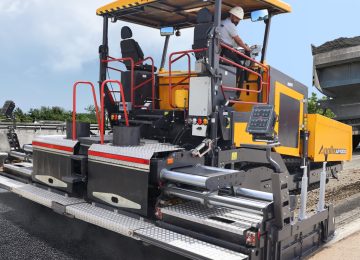ESG in supply chain is critical as it identifies the pre-consumer, and post-consumer waste, says Radhika Kalia, Managing Director, RLG Systems India. Pvt Ltd in Part one of an exclusive two-part series interview with Renjini Liza Varghese, Chief News Editor, ESGNews.earth
RLG has positioned itself as a pioneer in EPR services since entering India in 2017. How do you assess the company’s role in shaping compliance and accountability frameworks in a complex market like India?
Over the last twenty years, consumerism has surged in India, especially post-economic reforms. Today’s fast consumer turnover and deeper pockets have led to a higher propensity for waste and lowered appreciation for value.
Economic and financial changes are causing increased wastage in food and packaging. Awareness remains low, and individual responsibility for waste is lacking. In India, stringent regulation is crucial for progress.
Standardized products and processes with systemic approaches are key.
We as a reverse logistics company, every movement is an SKU which ranges from five lakhs to one crore. We are not a factory, but we are building moving goods, which is like a factory. We treat each truck movement as an SKU, ranging from small goods to vehicles. Documentation and process rigor enable traceability and compliance. Challenges arise often, but we adapt by improving procedures and rules. Our team and stakeholders understand and participate in these systems.
How does RLG India balance the transfer of global best practices with the unique realities of India’s waste management ecosystem?
Bookkeeping and stakeholders (vendors, customers) are similarly structured worldwide. It is very similar here. The chain is straightforward: a scrap dealer acts as a vendor, logistics partners move the material to recyclers, fees are paid for processing, and recovery value flows back to the client.
In India, the process is not inherently difficult—it primarily requires awareness building. The challenge lies in the informal nature of the sector—many dealers lack KYC compliance or formal structures. Yet, the scrap market is highly liquid, with significant money flows and improved transparency since the introduction of GST, which curtailed fake invoicing and strengthened compliance. As a result, industry players are increasingly formalized and actively engaged.
That said, India is a uniquely complex market. Regional differences are stark: what sells in North India may not work in Kerala, and consumer preferences vary widely across East, West, and South. Multinationals operating here must recognize and adapt to these socio‑economic and behavioral diversities.
EPR is often seen as a regulatory cost in India. How do you view its interaction with ESG and circularity?
Over the last few years, Extended Producer Responsibility (EPR) has become part of cost structures. Forward‑looking brand owners had integrated it as early as five years ago, embedding design‑for‑environment principles into products. Today, even durables are being re‑engineered with sustainability in mind, reflecting a shift from compliance to conscious design.
Customers are also prepared to absorb a marginal cost increase if it ensures environmental responsibility. This shift is driving companies to prioritize resource recovery.
For example:
- Lead‑acid battery makers now reuse 70–80% recycled material, significantly reducing virgin lead.
- In the tire industry, reliance on virgin rubber is declining as synthetic and recycled alternatives expand.
Ultimately, how companies approach ESG and circularity depends on boardroom intent and supply‑chain discipline. Material choices, procurement strategies, and packaging design are increasingly scrutinized, with cost efficiency linked directly to sustainability performance.
Over the next 5–10 years, we’ll see deeper changes as businesses recognize that efficiency and sustainability go hand‑in‑hand. Even packaging—material or lighter alternatives—is being redesigned, with e‑commerce players already adapting to smarter, less resource‑intensive formats.
The informal waste sector plays a critical role in India’s recycling ecosystem. How do you engage or integrate these traditional stakeholders into organized waste management frameworks?
The informal sector should be viewed as a legitimate part of the business ecosystem. While traditionally unstructured, the informal sector has undergone significant formalization over the past 5 to 7 years. Organizations like ours have driven change by encouraging formal agreements and supporting formal banking facilities.
Today, even vendors in the informal sector operate with greater structure and awareness of compliance requirements such as KYC and goods movement regulations. Regulatory changes including GST implementation, FASTag, integration with GST portals, and e-invoicing mandates have transformed operational transparency. For example, truck movements are now fully integrated with tax systems and electronic waybills, ensuring accountability.
Part 2: Read about plastic waste, regulations and compliances in India and the importance of integrating sustainable reverse logistics











